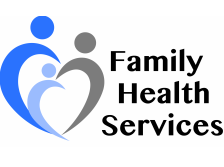Diabetes News – August 2021
August is National Immunization Awareness Month
Immunizations are an important part of yearly checkups and not just for kids. Each year thousands of adults in the United States get sick from diseases that could be prevented by vaccines — some people are hospitalized, and some even die. People with diabetes (both type 1 and type 2) are at higher risk for serious problems from certain vaccine-preventable diseases. Getting vaccinated is an important step in staying healthy. If you have diabetes, talk with your doctor about getting your vaccinations up to date.
Why Vaccines are Important for You:
Diabetes, even if well managed, can make it harder for your immune system to fight infections, so you may be at risk for more serious complications from an illness compared to people without diabetes.
-
- Some illnesses, like influenza, can raise your blood glucose to dangerously high levels.
- People with diabetes have higher rates of hepatitis B than the rest of the population. Outbreaks of hepatitis B associated with blood glucose monitoring procedures have happened among people with diabetes.
- People with diabetes are at increased risk for death from pneumonia (lung infection), bacteremia (blood infection) and meningitis (infection of the lining of the brain and spinal cord).
- Immunization provides the best protection against vaccine-preventable diseases.
- Vaccines are one of the safest ways for you to protect your health, even if you are taking prescription medications. Vaccine side effects are usually mild and go away on their own. Severe side effects are very rare.
Frequently recommended adult vaccines may include: Influenza, Pneumococcal, Hep B, Zoster and Tdap. We provide several vaccines at our facility, including COVID-19 vaccine. Call us for more information or to schedule your vaccine today!
Content source: National Center for Immunization and Respiratory Diseases – https://www.cdc.gov/vaccines/adults/rec-vac/health-conditions/diabetes.html
The Diet-Betus – our version of recipe of the month just as tasty but with a healthy tweak here and there. August is here, school and fall are just around the corner. Make the most of your grill while you can. Now is the perfect time to head out to the local farmer’s market and grab some fresh corn for this recipe.
Mexican-Style Corn on the Cob
TOTAL TIME: Prep: 10 min & Grill: 5 -10 min
YIELD: 4 servings
Ingredients
- 2 tablespoons reduced-fat mayonnaise
- 1/2 teaspoon chili powder
- 1/2 teaspoon grated lime peel
- 4 ears corn, shucked
- 2 tablespoons grated Parmesan cheese
Directions
Prepare grill for direct cooking. Combine mayonnaise, chili powder, and lime peel in small bowl; set aside.
Grill corn over medium-high heat, uncovered, 4 to 6 minutes or until lightly charred, turning 3 times. Immediately spread mayonnaise mixture over corn. Sprinkle with cheese.
Source: https://www.diabetesselfmanagement.com/recipes
Community offerings: *
* Many community offerings have been postponed or canceled as a result of the coronavirus/COVID 19. Please call the number listed for the event to verify availability, dates, and times.
If you have questions regarding Coronavirus/COVID-19 please call 1-833-4-ASK-ODH (1-833-427-5634)
Or, go to https://www.cdc.gov/coronavirus/2019-nCoV/index.html or https://coronavirus.ohio.gov/wps/portal/gov/covid-19/.
Diabetes Empowerment Education Program (DEEP)
COST: Free / CONTACT: Tina Elmlinger 419-624-1856
The Diabetes Empowerment Education Program [DEEP] is offered every Wednesday for six weeks. Good attendance is important. This free program is for diabetics, pre-diabetics, and spouses or caregivers of a diabetic. Residents of Erie County, aged 60 or older, please call 419-624-1856 to register.
Diabetes Support Group – Firelands Regional Medical Center
The Diabetes Support Group presented by Jean Feick CNP, CDE, meets the third Wednesday of each month Sept–November and January-May from 12:00pm –1:00pm. This meeting is free to the public and no registration is required. Attendees are welcome to purchase lunch in the hospital cafeteria and come to the adjacent Cafeteria Meeting #1. A different topic will be reviewed each month. If you have questions, please contact the Diabetes Education Department at 419-557-6992.
HEALTH & WELLNESS SCREENING – offered by Firelands Regional Medical Center
You must Pre-register for all Lab Work at 419-557-7840.
Sandusky Health & Wellness
Firelands Regional Medical Center South Campus
1912 Hayes Avenue Sandusky, OH
Saturday, August 14
7:00 am -9:30 am
Sandusky Health & Wellness
Firelands Regional Medical Center South Campus
1912 Hayes Avenue Sandusky, OH
Saturday, September 11
7:00 am -9:30 am
Sandusky Health & Wellness
Firelands Regional Medical Center South Campus
1912 Hayes Avenue Sandusky, OH
Saturday, October 9
7:00 am -9:30 am
Sandusky Health & Wellness
Firelands Regional Medical Center South Campus
1912 Hayes Avenue Sandusky, OH
Saturday, November 6
7:00 am -9:30 am
Sandusky Health & Wellness
Firelands Regional Medical Center South Campus
1912 Hayes Avenue Sandusky, OH
Saturday, December 4
7:00 am -9:30 am
Health & Wellness Screenings include:
- Complete Blood Count with Metabolic & Lipid Panel (No Eating or Drinking for 12 Hours – Water Allowed – includes liver and kidney function studies, fasting blood sugar, thyroid, cholesterol, HDL/LDL, and triglyceride levels along with a complete blood count.) – $45;
- Hemoglobin A1C (A three-month report card on how well your blood sugars have been running. A test used to diagnose diabetes and/or to evaluate how well your treatment plan is working.) – $25;
- PSA (Prostate Specific Antigen)- $30;
- Vitamin D – $35;
- TSH – $25
Diet and exercise are an essential part of diabetes management, so is routine testing.
The A1C test—also known as the hemoglobin A1C or HbA1c test—is a simple blood test that measures your average blood sugar levels over the past 3 months. It’s one of the commonly used tests to diagnose prediabetes and diabetes, and is also the main test to help you and your health care team manage your diabetes. Higher A1C levels are linked to diabetes complications, so reaching and maintaining your individual A1C goal is important if you have diabetes.
Last quarter, 70% of our diabetic patients had an A1C of less than 9%. Talk with your provider to discuss the right options for you.



